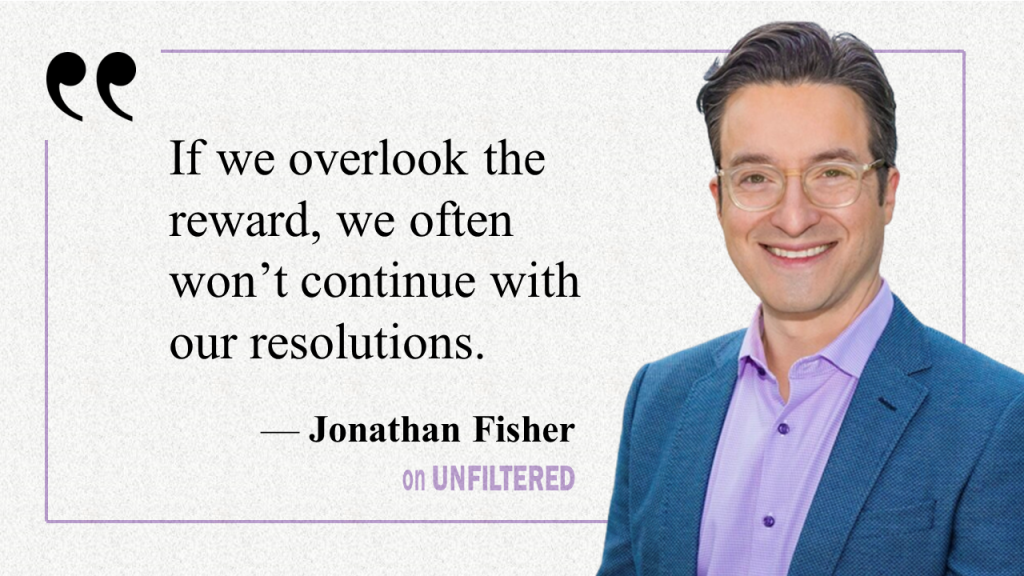Podcast: Play in new window | Download
Subscribe: Spotify | Email | RSS | More
This “Unfiltered” episode of Fixing Healthcare welcomes back Dr. Jonathan Fisher, a respected cardiologist and renowned advocate for physician well-being.
Last Wednesday, January 17, was “Quit Day,” when most people give up on their New Year’s resolutions to get fit, eat better and try new things. Today’s show leads with an up-close look at the annual ritual of making (and breaking) resolutions.
“I have a little bit of skepticism about resolutions in general,” says Dr. Fisher, adding, “I certainly make resolutions for myself, especially around fitness, around relationships, around nutrition. But I want to ask, what does it actually mean to have a resolution? If you resolve to do something, doesn’t that mean you’re going to do it once and for all, and you don’t have to keep making these things every year?”
Fixing Healthcare cohost Dr. Robert Pearl notes that there’s very little in healthcare that we do once and that’s it. “Maybe get our appendix taken out,” he says, but the point is that these promises we make to ourselves don’t come with an annual (or 17-day) stopping point. Perhaps it is the gravity of these resolutions that makes it all the more difficult to keep them.
Today’s show explores why it’s so hard to get resolutions to stick, and what people can do to live happier, healthier lives without the pressure of this oft-failed tradition. Later in the episode, Dr. Fisher discusses the “placebo effect” and its impact on medicine. The group concludes with a discussion of “flow” and the positive psychological principle of being in the zone. As always, cohost Jeremy Corr chimes in with a question on behalf of patients.
To discover more, press play and check out these helpful links:
Presale: ‘Just One Heart’ (Jonathan Fisher’s new book)
5 New Year’s Resolutions That Can Save Your Life (Forbes)
3 Beneficial Healthcare Laws The 118th Congress Could (Actually) Pass (Forbes)
Breaking The Rules Of Healthcare (LinkedIn)
* * *
Fixing Healthcare is a co-production of Dr. Robert Pearl and Jeremy Corr. Subscribe to the show via Apple Podcasts or wherever you find podcasts. Join the conversation or suggest a guest by following the show on Twitter and LinkedIn.

